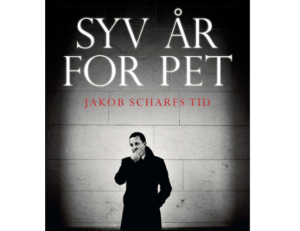News
Danish newspaper releases book banned by national security agency
This article is more than 9 years old.
‘Seven years for PET’ is based on interviews with the former head of the agency, Jakob Scharf

PET decided to ban the book without even reading it, claims Politiken’s editor in chief (photo: People’s Press)
Danish newspaper Politiken has today published the entire contents of the book ‘Seven years for PET – the times of Jakob Scharf’ (‘Syv år for PET – Jakob Scharfs tid’), which has been banned by the national intelligence and security authority, PET.
On Friday afternoon, PET successfully obtained an injunction against the sales of the disputed book at the Copenhagen City Court, which also ordered several Danish media, including Radio24syv and Ekstra Bladet, not to publish content from the book.
According to Marianne Pedersen – the CEO of Indeks Retail, which owns two of the country’s largest bookstore chains, Bog & Idé and Bøger & Papir – the company has to pay between 100,000 and 130,000 kroner for losing the court case.
Meanwhile, PET has issued a statement that the agency will not continue to pursue the injunction, because Politiken’s rapid action has doomed the court’s decision meaningless.
READ MORE: Guardian journalist tries to shed light on ‘Danishness’
Banned book available online
‘Syv år for PET’ was written by Morten Skjoldager, a journalist at Politiken, and published by People’s Press.
It is based in part on interviews with Jakob Scharf, who served as the head of the Danish security authority between 2007 and 2013.
Christian Jensen, the editor-in-chief at Politiken, has criticised that neither PET nor the district court had read the book before they decided to have it banned.
“If PET can ban books or newspaper articles without any concrete evidence to support its suspicion, then we have accepted that an intelligence service acts as a censor that undermines the freedom of press,” Jensen told DR.
Politiken decided to release the book both in a special Sunday edition of the newspaper and online, where it is available to subscribers for free.
It is not the first time the newspaper has published from a banned book.
One of the most famous examples is the book ‘Commissioner’s Diary’ (‘Kommissærens Dagbog’) from 1995 about the experiences of Ritt Bjerregaard as a European commissioner.










































